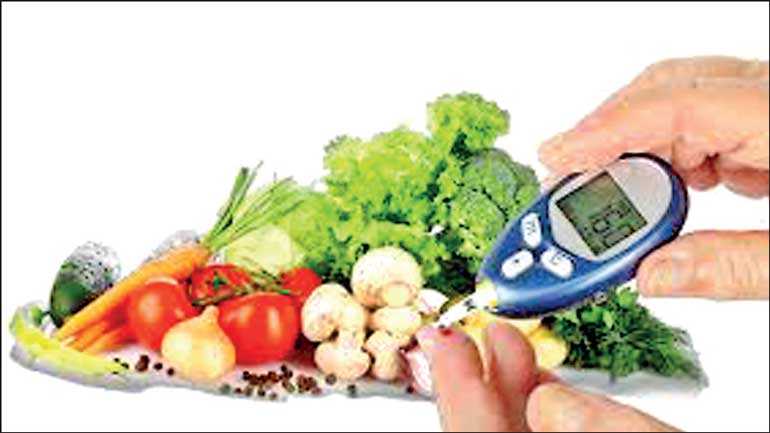Wednesday Feb 25, 2026
Wednesday Feb 25, 2026
Thursday, 14 November 2019 00:00 - - {{hitsCtrl.values.hits}}

Diabetes is a significant threat to public health across the WHO South-East Asia Region. An estimated 91 million people in the region suffer from diabetes. Around 49 million – more than half – are unaware  they have it. Undiagnosed or poorly controlled type 1 or type 2 diabetes can lead to heart, kidney, nerve, or eye damage. It can also lead to premature death, which in the region accounts for just under 50% of all deaths caused by noncommunicable diseases (NCDs). Preventing and controlling NCDs is one of the region’s eight Flagship Priorities.
they have it. Undiagnosed or poorly controlled type 1 or type 2 diabetes can lead to heart, kidney, nerve, or eye damage. It can also lead to premature death, which in the region accounts for just under 50% of all deaths caused by noncommunicable diseases (NCDs). Preventing and controlling NCDs is one of the region’s eight Flagship Priorities.
As part of the region’s primary healthcare approach to tackling diabetes, families must be empowered to act. Families have an important role in creating awareness of the risks of diabetes, including overweight and obesity. They can also instil healthy habits such as physical activity that help prevent diabetes, including its early onset, which in the region is high. In addition, family members are often the first to identify diabetes’ signs, symptoms, risks and complications. When complemented by access to quality primary healthcare, families are an important asset in the battle against diabetes.
The region’s member states are taking decisive action. All countries have developed national multisectoral NCD action plans. Each plan contains specific interventions to tackle diabetes. Their roll-out has occurred alongside member state efforts to strengthen primary-level NCD services, which will also help the region achieve its Flagship Priority on universal health coverage. Several opportunities exist for the region to sustain and accelerate its progress and achieve the ‘25x25’ and Sustainable Development Goal targets. Each of them should be grasped.
First, all families should have access to educational resources on diabetes. This can be done via social and behavioural change campaigns that highlight the family unit’s role as a first line of defence. Campaigns should also outline how families can work together to develop healthy habits. This is particularly important given most diabetes cases are type 2, meaning they can be avoided by healthy eating and adequate physical activity.
Second, access to healthy environments should be increased. The creation of green spaces and outdoor gyms will facilitate exercise and the weight management it brings. So too will efforts to reformulate unhealthy food and drinks and enhance people’s ability to make healthy choices. Though these measures go beyond the health sector, health authorities should act as nodal agencies, working across sectors to find high-impact solutions that also reduce healthcare costs.
Third, all families should have access to quality primary healthcare. Primary-level services must be equipped to detect diabetes, including the high and rising incidence of pre-diabetes. A reliable supply of quality medicines and medical products that can help manage cases should be on hand. Each of the interventions outlined in the Colombo Declaration on accelerating the delivery of NCD services at the primary level, which the Region adopted in 2016, must be fully implemented.
The region’s efforts to halt the rise of diabetes by 2025 and beyond must continue. It must also be scaled up. On World Diabetes Day, WHO reiterates its commitment to supporting member states tackle diabetes via a multisectoral, primary healthcare approach that empowers families. Together we must fight diabetes. Together we can win.
(The writer is WHO Regional Director for South-East Asia.)